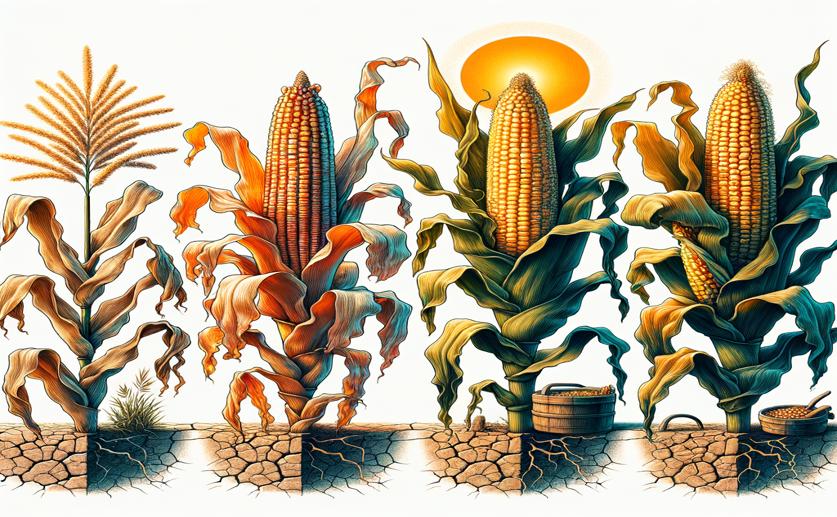
Evaluating Maize Varieties for Drought Resistance
Greg Howard
29th June, 2024

Image Source: Natural Science News, 2024
Key Findings
- The study by Tribhuvan University evaluated the reproductive performance of 20 local maize genotypes under drought conditions
- Significant differences were found among the genotypes for traits like grain yield, ear weight, and hundred grain weight
- Genotype NGRC05592 showed the highest yield and stability under drought conditions, making it a promising candidate for breeding drought-tolerant maize varieties
AgricultureEnvironmentPlant Science
References
Main Study
1) Performance evaluation and multivariate analysis of maize accessions against drought stress in Lamjung district, Nepal
Published 28th June, 2024
https://doi.org/10.1007/s44279-024-00046-x
Related Studies
2) Characterizing drought stress and trait influence on maize yield under current and future conditions.



 8th June, 2024 | Jenn Hoskins
8th June, 2024 | Jenn Hoskins